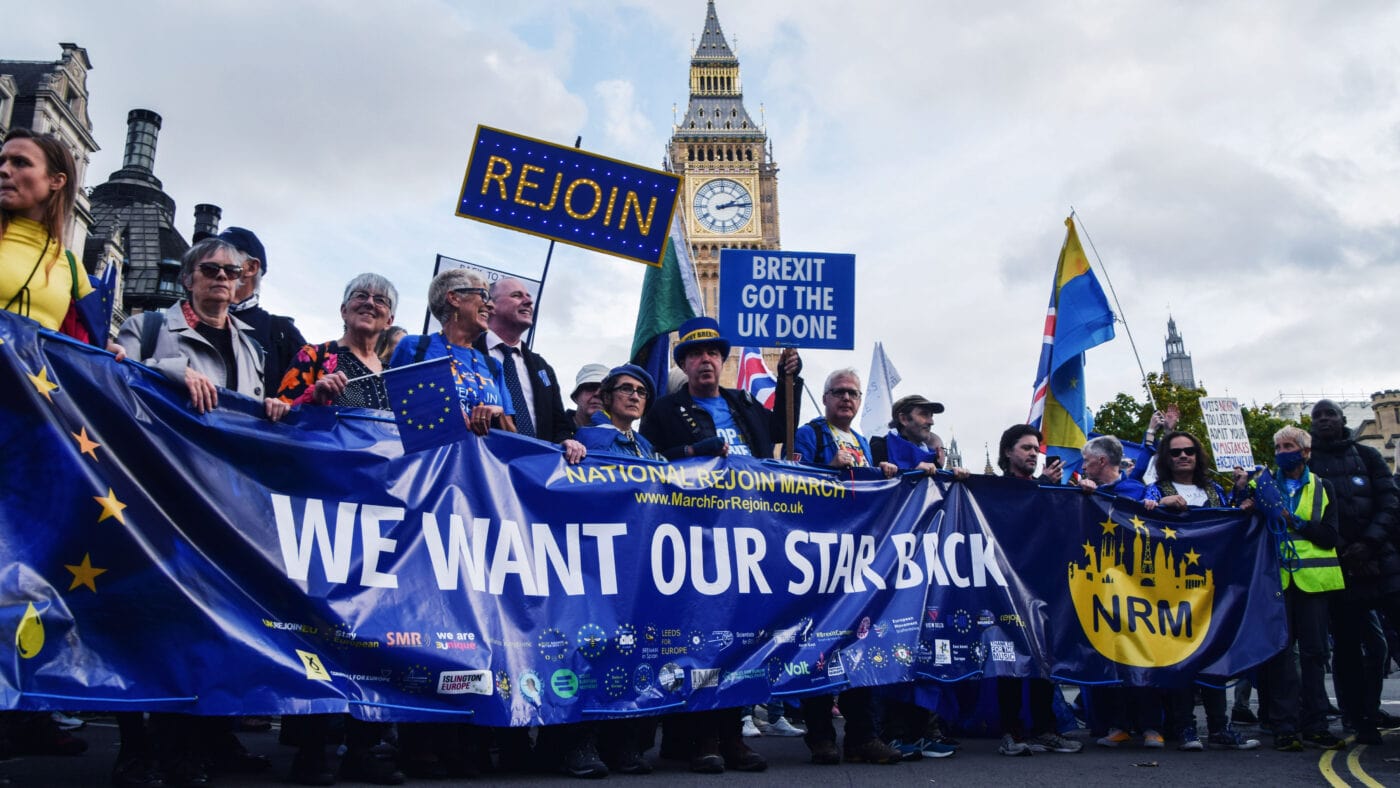This week marked three years since the UK officially left the European Union. To mark the occasion, a new poll from UnHerd revealed that 54% of voters now think leaving was the wrong decision.
Much as that finding will gladden the hearts of the Rejoiner community, it’s really not that surprising. After all we are no longer just Britain, but ‘Brexit Britain’ – and given that Brexit Britain is a rather miserable place right now, it’s no great shock that many put it down to Brexit.
There are some pro-Europeans who will put pretty much anything down to Brexit. A reliably constant Exhibit A is the Belgian MEP Guy Verhofstadt, who claimed this week, without apparent irony, that Vladimir Putin might not have invaded Ukraine had Britain not left the EU.
Now, it would be silly to argue that Brexit has not had any negative impact on the British economy; the combination of years of uncertainty, lots of regulatory change and masses of extra bureaucracy for British exporters are not to be blithely waved away.
However, the idea that it is the predominant cause of our manifold economic problems, as some Continuity Remainers would have you believe, is for the birds. Take this week’s gloomy IMF growth forecast, which some have seized on as evidence of the folly of Brexit. The Fund itself said nothing of the sort. Instead, it blamed our poor (predicted) performance on three things: the high price of liquefied natural gas, labour shortages and monetary tightening.
You could blame labour shortages on leaving the EU, but it’s just as much a story of Boomers retiring early as of, say, eastern Europeans not coming here to pick fruit and veg. Remember too that the ‘pull up the drawbridge’ version of Brexit some feared has simply not materialised: net migration to this country last year was estimated at over 500,000.
Even then we are only talking about relatively short-term changes and a short-term forecast. Britain’s combination of low productivity, weak business investment, patchy skills, creaky infrastructure and a sluggish state all go way back – beyond not just the last few years’ economic pain, but also well beyond the vote to leave the EU in 2016.
Liz Truss’ Growth Plan may now be the object of derision (no matter how gallantly she defends it in today’s Sunday Telegraph), but she did have a point about UK growth being just 1.8% in the two decades leading up to the pandemic, and that raising that ceiling is a sine qua non for all the other things we want the Government to do.
Of course, Brexit alone was never going to effect that kind of change, but it did present a chance to do things differently to the EU’s interventionist, hyper-regulatory model.
That’s why it’s both striking and disappointing, not least to many convinced Brexiteers, that so little has actually changed since the 2016 vote. It took five years to properly exit the EU, transition period and all, and we still have about 2,400 pieces of EU law on the statute book – and the process of removing some of those laws has prompted reports of a ‘full scale trade war’ with Brussels.
It’s disappointing, too, that even out of the EU our government seems willing to tie British businesses in regulatory knots of its own making (see the Online Safety Bill, for instance).
All of which strongly suggests the wrangling over what our post-EU statute book looks like has only just begun – and that three years from the 2019 election, getting Brexit done is still more of a slogan than a reality.
Click here to subscribe to our daily briefing – the best pieces from CapX and across the web.
CapX depends on the generosity of its readers. If you value what we do, please consider making a donation.


